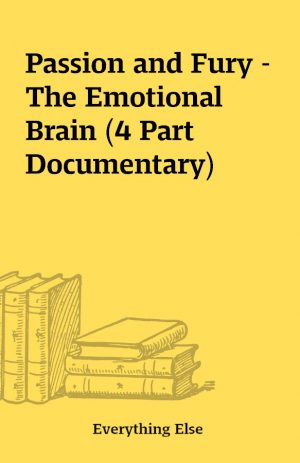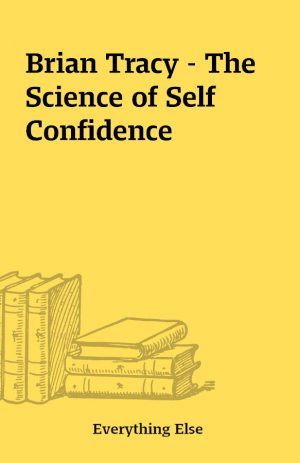TTC Audio – The Spiritual Brain – Science and Religious Experience
TTC – The Spiritual Brain – Science and Religious Experience
[ 24 MP3 ]
Description
This is the Audio version of Video – The Spiritual Brain – Science and Religious ExperienceProfessor Andrew Newberg Myrna Brind Center of Integrative Medicine at Thomas Jefferson University Hospital 24 lectures | 30 minutes per lecture Does God exist? Do we have a soul? Is it possible to make contact with a spiritual realm? How should we respond to the divine?Will life continue beyond death?Whether you are a deeply religious person, a spiritual seeker, or one who has come to doubt or disbelieve in a spiritual power, you have probably pondered these questions and at least begun to answer them for yourself. In fact, archaeological and historical records show that even the earliest humans were aware of a spiritual realm and developed religious practices as a result.One of humanity’s most awesome forces, the spread and practice of religion has exerted a profoundly outsized effect on individuals and entire civilizations, altering the course of history. The religious impulse is so powerfully pervasive that neuroscience has posed a provocative question: Are our brains wired to worship?In The Spiritual Brain: Science and Religious Experience, award-winning scholar and practicing neuroscientist Dr. Andrew Newberg, Director of Research at the Myrna Brind Center of Integrative Medicine at Thomas Jefferson University Hospital, offers you 24 riveting lectures that explore the new and exciting field of neurotheology, a discipline aimed at understanding the connections between our brains and different kinds of religious phenomena. Using an academic, experimental approach into what he calls “objective measures of spirituality,” Dr. Newberg attempts to explain what others have previously only guessed at: the neuroscientific basis for why religion and spirituality have played such a prominent role in human life.Spirituality through a Scientific LensHow do religious experiences originate? What is their meaning? And why does religion play such a huge role in human experience? In this captivating course, you will peer directly into the seat of all human thought and action as you experience a leading researcher delve into the relationship between brain function and spirituality.Dr. Newberg grounds The Spiritual Brain in the context of the brain’s neurophysiological structure and religious development from infancy through late adulthood. You’ll discover how the brain and spirituality appear to develop in parallel throughout a person’s life span, tracking through different stages of religious awareness. You’ll also learn – how the various parts and systems of the human brain work together to create and sustain different beliefs about the world; – the ways in which religious beliefs and practices have measurable, biological effects on the individuals who hold and engage in them; and – why the increasing neuroscientific data help us to better understand how God, religion, and spirituality may be inextricably intertwined with ongoing brain development.Now, after millennia of human devotion to the divine, neuroscience is beginning to disclose the relationship between religion and the brain by providing answers to questions that have long eluded us. Or have they? Could this modern discipline actually be reinforcing some of our most cherished beliefs?New Insights into That Old Time ReligionA leading researcher in neurotheology, Dr. Newberg offers you innovative approaches to ancient beliefs and practices. Using brain imaging and other cutting-edge physiological studies, he helps you to better understand how the brain controls or responds to religious and spiritual beliefs and behavior. For example, you’ll examine MRI studies showing that long-term practitioners of spiritual practices like meditation have thicker and more active frontal lobes than those who do not practice meditation.One obvious question that arises: Did their brains naturally develop these attributes, making them more inclined to practice meditation? Or did their brains change over time as a result of practicing meditation? Follow Dr. Newberg as he continually devises new experimental methods designed to answer these apparent scientific stalemates.You’ll also take a look at “snapshots” he has taken of the brains of cloistered Franciscan nuns engaged in prayer. You will then see what his analysis showed about the neurological changes that took place during prayer, as well as long after.For many people, religious practice relates to a specific tradition, but that is not always the case. In The Spiritual Brain, you’ll observe what Dr. Newberg’s groundbreaking research tells us about the role the brain plays in mystical states. You’ll study firsthand accounts showing – how speaking in tongues may represent a supernormal functioning of certain areas of an otherwise whole and healthy human brain; – why near-death experiences and other reports of disembodied consciousness might be more than the activity of a brain on the verge of physical extinction; and – what the widespread experiences of divine revelation and spiritual salvation have to do with the brain’s continued progression toward advanced states of development.With every intriguing answer these experiments produce, many more questions are raised as a result, and with this course you have the advantage of Dr. Newberg’s expertise to accompany your quest for their answers every step of the way.Inside the Body of the Believing BrainThroughout The Spiritual Brain, Dr. Newberg examines not only the neural activity of the religious brain, but also the effects of various religious beliefs and practices on human mental and physical health. There are literally hundreds of studies that show that religion has a measurable effect on health. What’s more, specific religious beliefs also have specific health advantages. You will see that – church attendance is associated with decreased heart disease, blood pressure, emphysema, cirrhosis, and suicide; – Mormon males may have decreased rates of cancer and mortality; – elderly Christians and Jews are less likely to die in the 30 days before important holidays; and – Seventh-Day Adventists live longer than the average population.If this connection exists, these same studies then raise the question of potentially detrimental effects of religious belief and practice, such as in cases of dangerous cultic activity. Dr. Newberg evaluates fascinating research involving both believers and atheists showing the ways in which your beliefs actually determine how you rationalize—as well as mistake—the world around you.Your brain is a belief-generating machine that has evolved to realize your beliefs through your behaviors. Join Dr. Newberg as he shares some game-changing discoveries coming out of the field of modern neuroscience, and perhaps on your thrilling voyage through these fascinating discoveries, you may reconsider some of your own beliefs along the way. 1 A New Perspective on Ancient Questions 2 Why Do We Have a Spiritual Brain? 3 Brain Function and Religion 4 How Does Science Study Religion? 5 Believers and Atheists 6 Spiritual Development 7 The Myth-Making Brain 8 The Brain and Religious Rituals 9 The Biology of Spiritual Practices 10 Religion and Health 11 Religion and Mental Health 12 Religion and Brain Dysfunction 13 Transmitters to God 14 Stimulated States and Religious Experiences 15 Near-Death Experiences and the Brain 16 The Believing Brain 17 The Brain’s Influence on Religious Ideas 18 Revelation, Salvation, and the Brain 19 The Brain’s Influence on Religious Behavior 20 How the Brain Changes God 21 How God Changes the Brain 22 Why God Won’t Go Away 23 The Mystical Mind 24 Reality and BeyondYour Professor Andrew NewbergMyrna Brind Center of Integrative Medicine at Thomas Jefferson University HospitalDr. Andrew Newberg is the Director of Research at the Myrna Brind Center of Integrative Medicine at Thomas Jefferson University Hospital. He is also a Professor in the Departments of Emergency Medicine and Radiology at Thomas Jefferson University, and he teaches undergraduate courses at the University of Pennsylvania. Dr. Newberg received his medical degree in 1993 from the University of Pennsylvania School of Medicine. He completed his residency in Internal Medicine at the Graduate Hospital in Philadelphia, and he completed a fellowship in Nuclear Medicine at the University of Pennsylvania. He is board certified in Internal Medicine and Nuclear Medicine. Dr. Newberg has actively pursued neuroimaging research projects, including studies of aging and dementia, epilepsy, and other neurological and psychiatric disorders. He has been particularly involved in the study of religious and spiritual experiences and the relationship among the brain, religion, and health. Dr. Newberg’s research has included analyzing brain scans of people in prayer, meditation, rituals, and various trance states. His research also has included understanding the physiological correlates of acupuncture therapy, massage, and other types of alternative therapies. Dr. Newberg has taught medical students, undergraduate and graduate students, and medical residents about stress management, spirituality and health, and the neurophysiology of religious experience. In 2010, he was named Teacher of the Year for the University of Pennsylvania’s Biological Basis of Behavior Program. Dr. Newberg has published numerous articles and chapters on brain function, brain imaging, and the study of religious and spiritual experiences. He is the author of Principles of Neurotheology, a culmination of ideas based on his research over the past 10 years. He is a coauthor of the best-selling books How God Changes Your Brain and Why God Won’t Go Away: Brain Science and the Biology of Belief. His most recent book, Words Can Change Your Brain, was published in June 2012. Dr. Newberg is also a coauthor of Born to Believe: God, Science, and the Origin of Ordinary and Extraordinary Beliefs and The Mystical Mind: Probing the Biology of Religious Experience, both of which explore the relationship between neuroscience and spiritual experience. The latter book received the 2000 award for Outstanding Books in Theology and the Natural Sciences presented by the Center for Theology and the Natural Sciences. Dr. Newberg has presented his work at scientific and religious meetings around the world and has appeared on Good Morning America, Nightline, CNN, and ABC’s World News Tonight. His research also has appeared in Newsweek; TIME; The New York Times; Los Angeles Times; Scientific American; O, The Oprah Magazine; and Reader’s Digest.
You must be logged in to post a review.






Reviews
There are no reviews yet.